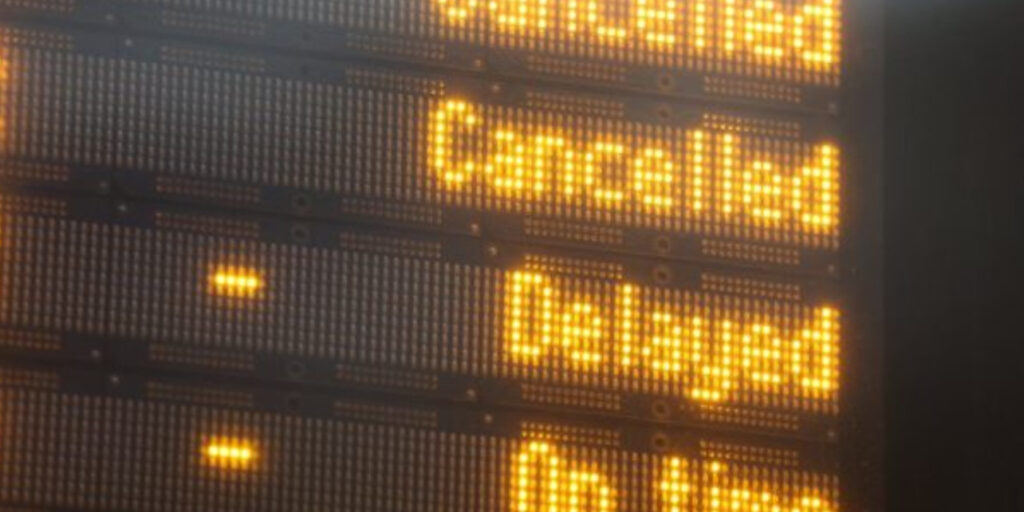Official data has revealed that more than 200,000 train services were cancelled across Britain in the past year, marking the worst performance in nearly a decade.
The findings, based on an analysis of Office of Rail and Road data, highlight the mounting challenges facing the rail industry and the frustration experienced by passengers.
Alarming Figures
Between November 2022 and November 2023, about 208,000 train services were fully cancelled, alongside an additional 161,000 that were partially axed—missing at least one scheduled stop.
These cancellations account for 4% of the 7.3 million planned services, representing the poorest reliability rate since records began in 2015.
Disruption by Train Operators
Some operators performed notably worse than others. Avanti West Coast recorded the highest cancellation rate at 7.8%, followed by CrossCountry at 7.4%, Northern at 5.7%, and Govia Thameslink at 5.2%.
Meanwhile, c2c, which operates routes between London and Essex, stood out as the most reliable operator with a 1.6% cancellation rate.
Impact on Passengers
The increase in cancellations comes as rail ticket prices in England are set to rise by 4.6% next year, with railcards also seeing a £5 hike—further aggravating frustrations among commuters.
Sunday services are particularly disrupted due to staffing shortages, with many rail companies relying on voluntary overtime from train drivers and guards to maintain operations.
Root Causes of the Crisis
Several factors have contributed to the growing unreliability of Britain’s railways:
Staffing Challenges: A shortage of trained drivers and over-reliance on rest-day working has created vulnerabilities in scheduling.
Infrastructure Issues: Network Rail struggles to maintain tracks and signalling systems due to funding constraints.
Pandemic Legacy: Increased staff sickness post-pandemic has further exacerbated operational issues.
Expert Insights
Rail industry analysts point to long-standing failures in addressing staffing and operational inefficiencies. A lack of investment in workforce planning has created a “ticking time bomb” as retiring drivers outpace new recruits.
Additionally, inadequate funding for infrastructure maintenance has led to an increase in delays and cancellations.
Calls for Reform
Pressure groups and industry insiders stress the need for immediate action to rebuild passenger confidence. Investment in workforce development, infrastructure upgrades, and transitioning to a seven-day railway system are seen as essential steps to improving reliability.
Government and Industry Response
The government has acknowledged the issues, pledging to overhaul the railways and bring services back into public ownership to prioritise passengers.
Operators have also committed to addressing the root causes of delays and cancellations, including better communication with passengers about compensation options.
Outlook for 2024
While plans for a “seven-day railway” are on the table, the path to improved rail performance will require significant collaboration between the government, operators, and infrastructure managers. Passengers, however, remain sceptical, as they continue to endure disruptions and fare increases amidst promises of reform.


